Last Updated on January 24, 2025 by Steve
Introduction
As I write this article we have just heard of the ceasefire agreement between the Palestinians and Israel in the Gaza Strip and worldwide there have been pictures of rejoicing and relief at the ceasing of hostilities. No one likes war except maybe those who profit from it. But that will be nothing compared to the Year of Jubilee when Christ returns on the Day of the Lord. That is coming soon but that year of peace and great jubilation amongst God’s people will be preceded by seven years of tribulation—in other words trouble! This will be a time when God’s judgments will be poured out upon the earth. During this time there will be a great apostasy or falling away by believers and the Man of Sin, the Antichrist must be revealed. It will be a tough time for those present.
The word “jubilee” originates from the Hebrew word “yobel”, which means “ram’s horn” and is primarily found in the Book of Leviticus chapter 25. It comes from “yabal”, meaning a flow or current. A jubilee is a period of celebration, often marking a special anniversary, milestone, or achievement. It is typically characterized by festivities, ceremonies, and a sense of joy and gratitude. In the Hebrew tradition, a jubilee was a year of celebration and release that occurred every 50 years not 49 years as some believe. During the jubilee year, enslaved people were freed, debts were forgiven, and the land was allowed to rest one more year. It was a holy year. The ram’s horn was blown at the beginning of the jubilee as a symbol of freedom and renewal. The name ‘Year Of Jubilee’ means ‘Year Of Making Flow’, and marks the dissolution of a commercial grid-lock and an outburst of economic liquidity.1 The Year of Jubilee started on the tenth day of the seventh month, which is the Day of Atonement, Yom Kippur, by sounding a ram’s horn.2
Jubilee has been lost
The Jubilee cycle began and was only enforced when the Israelites entered the Promised Land.3 They were required to count off every seventh year as a Sabbath year when the land was given a rest and lay fallow. After seven sabbaths a 50th year was observed meaning that there would be two years when the people would only eat what the land itself would produce. There was to be no planting or harvesting of crops in the 49th year. But the Bible indicates that the Sabbaths and the Jubilee years were only observed for a few hundred years in the time of the judges. God warned King Solomon that if he failed to keep the commandments and statutes that He had instituted then He would uproot Israel from His land.4 Of course we know that Solomon was not faithful and caused all Israel to sin. Ultimately it ended in the destruction of Jerusalem and the temple by King Nebuchadnezzar. They were taken away to Babylon and God enforced a Sabbath for the land for 70 years. Why 70 years? Confirmation of the punishment is given in the last words of 2 Chron. 36:17–21. The land had not enjoyed her Sabbaths. For a 500 year period of the kings of Israel and Judah, they had failed to keep every 7th Sabbatical year. Over a 500 year period that adds up to 10 Jubilee cycles (10×50=500 years). There are 7 Sabbath years every Jubilee cycle and so that equals 70 years of Sabbaths (7×10=70 years).
But to be certain the Jubilee cycle has been lost and Jewish interpretation says that it can only occur when all 12 tribes are in the land and there is an operating Sanhedrin. This has not occurred since the destruction of the temple in AD 70. Despite predictions by certain Rabbis over the years the Jubilee cycle has been lost and we will only be certain once the Lord Jesus returns on the Day of the Lord. The Jubilee year will be the first year of the coming Millennial Kingdom. As in the picture above it will be a time of jubilation, celebration and true peace will come upon the world. Until then we will have wars and rumours of wars, tribulation, disasters and woes, asteroids, hyperinflation, pestilence with over half the world’s 8 billion population dying.
When does the new year begin in a Jubilee year?
From Rosh HaShana until Yom Kippur of the Jubilee Year, Hebrew slaves were not released to their homes because the shofar had not yet been sounded. And they were also not enslaved to their masters, as the Jubilee Year had already begun. Rather, they would eat, drink, and rejoice, and they would wear their crowns on their heads like free people. Once Yom Kippur arrived, the court would sound the shofar, slaves would be released to their houses, and fields that were sold would be returned to their original owners.
So what the above quote is saying is that the Jubilee year does actually begin on Tishrei 1 (Rosh Hashanah) but the slaves were not released until Tishrei 10 on the Day of Atonement when the trumpet was blown. During the ten days there would eating, drinking and celebration because their enslavement had ended but their release was imminent. So the notion that the Feast of Trumpets and Day of Atonement are on the same date (Tishrei 10) on a Jubilee year is false.
Implication for us when the Lord comes
So what implication does that have for us now as believers? Nothing has changed and we don’t need to worry that there is some modification to the timing of the rapture and resurrection. Rather the resurrection/rapture of all believers does actually occur on Tishrei 1 (Feast of Trumpets) and then there is a period of ten days with the Lord in the air with joy, celebration and observing the Lord defeat His enemies with the sword of His mouth from the air. During this period of ten days we will not yet be released to our new home in the new Jerusalem until the Jubilee trumpet—the day of the Lord, when all enemies have been accounted for at that time. They are not the same day even though Eze. 40:1 seems to indicate that upon a cursory reading. Furthermore, no well-known commentators I can find hold to this view. Commentators rather seem to be focused on whether this Eze. 40:1 is referring to the religious calendar in the Passover month or the civil calendar in the fall (Tishrei—Sep/Oct).
Conclusion
The Year of Jubilee at the end of our age marks the beginning and transition into the new millennium. It will be a year of jubilation, peace and celebration including the marriage supper of the Lamb. For the following 1000 years there will be no more wars. It will occur directly after the seven years of tribulation. Any guess as to when the Jubilee year has already occurred is probably pointless until the actual return of the Lord because its celebration and observance finished long ago. We won’t know until the tribulation begins and then we will be able to calculate it. The beginning of the tribulation will be marked by the appearance of the two witnesses which I believe has a good chance of being on Sh’mini Atzeret. See my article “The countdown to Sh’mini Atzeret 2029“.
Certain commentators like Nelson Walters (who is pre-wrath) hold to the Jubilee Year being every 49 years and so the implication is that year 7 of the seven-year tribulation is a Jubilee year not the following year at the beginning of the new millennium. Pre-wrath holds to the rapture occurring at the end of year 6 of that 70th week. But in my opinion that is an error because the Bible is quite clear that there are two Sabbath years where the people had to rely on gleanings from the land (the earth) itself. I.e. year 49 and year 50. In fact harvesting of the new crop can’t take place until the ninth year comes in (year 51).6 And until the Jubilee year (year 50) is proven by the trumpet call everything up to that point is judgment.
- https://www.abarim-publications.com/Meaning/Jubilee.html [↩]
- Lev. 25:9–10 [↩]
- Lev. 25:2 [↩]
- 2 Chron. 7:11–22 [↩]
- https://youtu.be/flanmAVD8KY?si=NPdo1Oc6RyjzvuY1 [↩]
- Lev. 25:20–22 [↩]

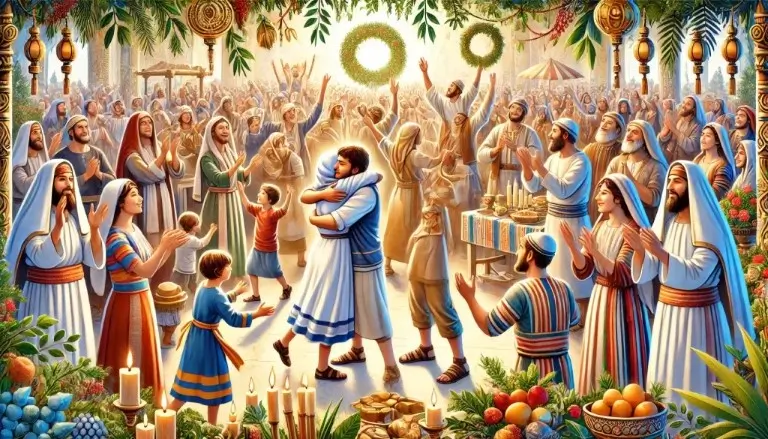


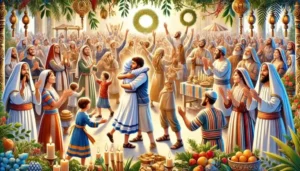
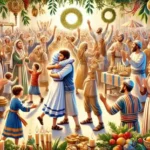
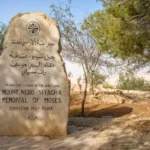







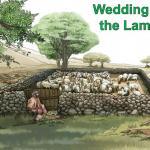
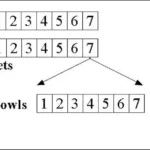
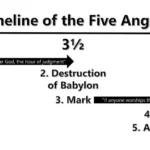
2 Responses
Hello Steve, I have a question… Even though the jubilees are not being practiced by Israel, does that mean that God is not using them to do his will in regards to earthly events in our time today?
P.S. I have read most of Jonathan Cahn’s books.
Hi Dave,
Yes, I believe that God has kept record of the Jubilee system and the 6000th year since creation will be the beginning of the 120th Jubilee. Gen. 6:3 is the key to this system where it says that God will only contend with man for 120 ‘years’. ‘Years’ can be solar years but there are many definitions of what a year is because the Hebrew in this verse is “shanah” which at its root means a cycle. Different cycles include the solar year, tropical year, great year, lunar year, jubilee year, leap year etc. The Jubilee year has not been lost to God, only to man.